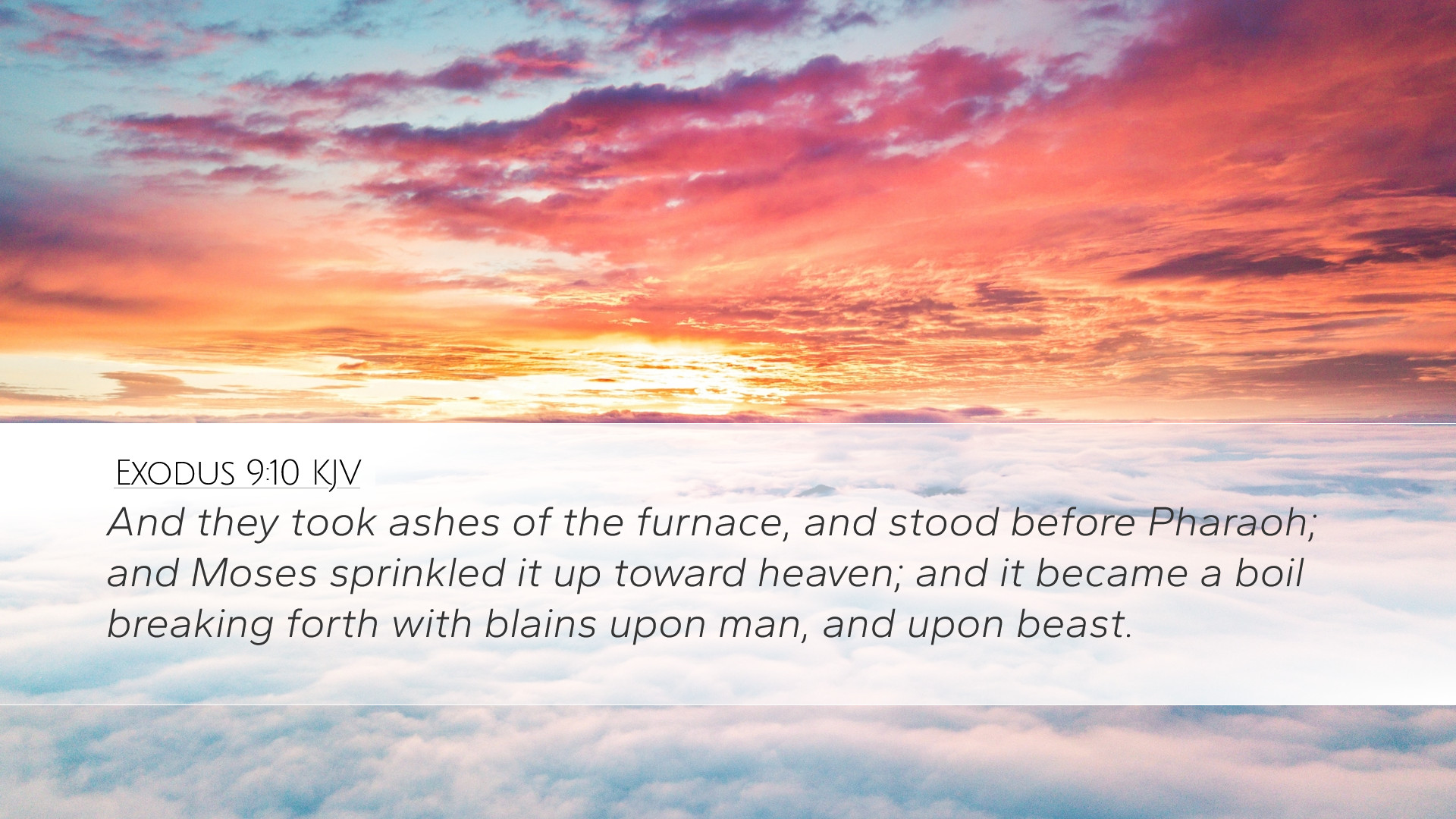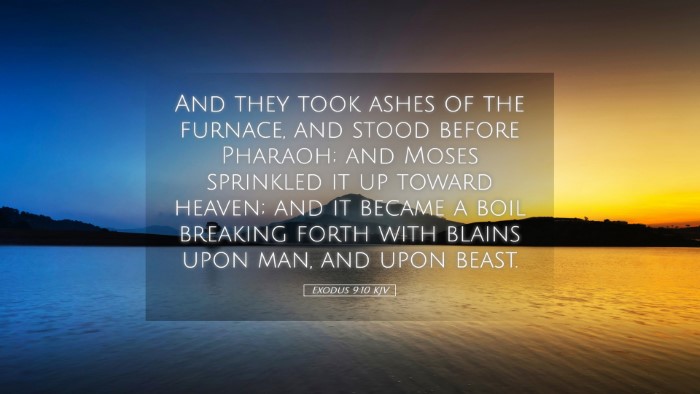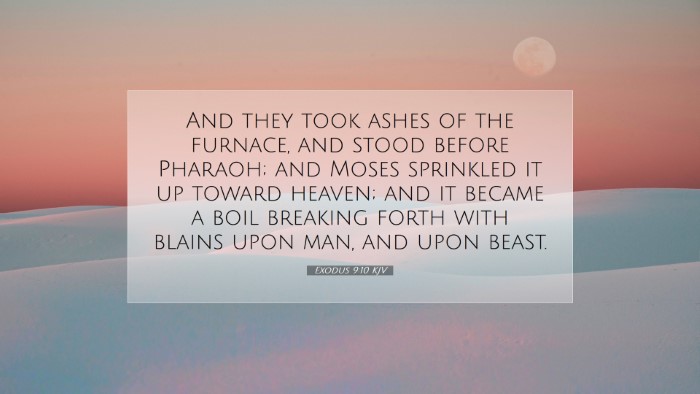Exodus 9:10 - Commentary Summary
Verse Context: Exodus 9:10 is part of the account of the plagues of Egypt, where God demonstrates His power over Pharaoh and the gods of Egypt. This particular verse addresses the action of Moses and Aaron in taking soot from a furnace to create boils upon man and beast. This sign serves as a profound declaration of God's authority and a stark warning to Pharaoh.
Text of the Verse
"And they took ashes of the furnace, and stood before Pharaoh; and Moses sprinkled it up toward heaven; and it became a boil breaking forth with blains upon man, and upon beast." (Exodus 9:10 KJV)
Commentary Insights
1. The Symbolism of Ashes
Matthew Henry notes that ashes are a symbol of death and mortality. The act of taking ashes from the furnace suggests that God is reminding Pharaoh of the ultimate outcome of rebellion against Him—death and destruction. The ashes represent the remnants of something that has been consumed by fire, symbolizing judgment. This act serves as a call for repentance.
2. Divine Authority Manifested
Albert Barnes emphasizes that the act of sprinkling the ashes toward heaven indicates the divine nature of the plague. It is not merely a physical act but one that invokes God's power. The visible manifestation of boils signifies a direct intervention by God, underscoring that this is a message directly from the Divine rather than a natural occurrence.
3. The Nature of the Boils
Adam Clarke elaborates on the type of affliction brought about by the boils. He explains that the word used indicates painful sores that would create significant suffering. This plague is distinct in its severity, impacting both humans and animals, which serves to show that God's judgment extends to all creation. Clarke also mentions the progressive nature of the plagues, with each one amplifying the consequences of Pharaoh’s hardened heart.
4. Pharaoh's Response
A critical part of understanding this verse lies in examining Pharaoh’s reaction. Matthew Henry further discusses the hardness of Pharaoh’s heart, reiterating the theme of human stubbornness in the face of divine signs. Despite the plagues escalating in intensity, Pharaoh continues to resist, demonstrating the tragic consequence of rejecting God’s message.
5. Lessons in Leadership and Authority
This passage also teaches lessons about authority and leadership. Albert Barnes remarks that true leaders are called to recognize the signs of divine intervention and respond with humility. Moses and Aaron’s role in this scenario exemplifies how leaders must act with integrity and decisiveness in the face of opposition from those in power.
6. Application for Today
For modern readers, particularly pastors and theologians, this verse serves as a poignant reminder of God's sovereignty and the consequences of sin. Adam Clarke suggests that it challenges contemporary believers to evaluate their own hearts—are we hardening our hearts against God’s call to repentance? The imagery of plagues can serve as a metaphor for the spiritual ailments that arise when one resists divine guidance.
Conclusion
The events leading up to and including Exodus 9:10 offer rich theological insights that resonate across the ages. The symbolism of the furnace ashes, the severity of the boils, and the direct confrontation with Pharaoh serve not only as historical accounts but also as profound spiritual lessons. Engaging deeply with this text allows for reflection on God's nature, the consequences of human sin, and the call for repentance that resonates through Scripture.
References for Further Study
- Henry, Matthew. Matthew Henry's Commentary on the Whole Bible.
- Barnes, Albert. Barnes' Notes on the Whole Bible.
- Clarke, Adam. Adam Clarke's Commentary on the Bible.


